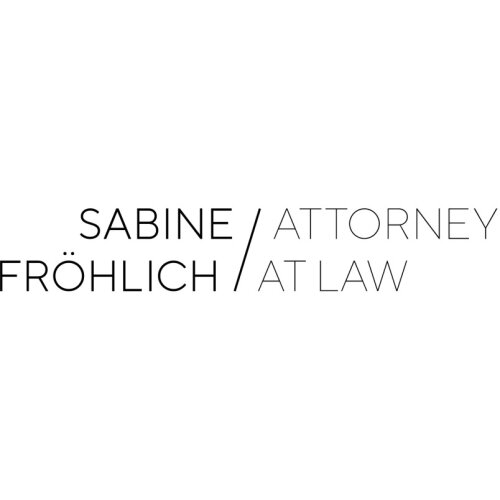Best Tax Lawyers in Liechtenstein
Share your needs with us, get contacted by law firms.
Free. Takes 2 min.
Or refine your search by selecting a city:
List of the best lawyers in Liechtenstein
About Tax Law in Liechtenstein
Tax law in Liechtenstein governs the imposition and collection of taxes within the country. Liechtenstein is known for its low tax rates and favorable tax policies, making it an attractive destination for individuals and businesses looking to optimize their tax liabilities.
Why You May Need a Lawyer
You may need a lawyer specializing in tax law in Liechtenstein if you are facing tax disputes, audits, or investigations. Additionally, legal assistance may be necessary for tax planning, structuring, and compliance to ensure that you are maximizing tax benefits while staying within the boundaries of the law.
Local Laws Overview
Key aspects of tax law in Liechtenstein include the taxation of income, capital gains, wealth, and inheritance. Liechtenstein offers various tax incentives for individuals and companies, including low corporate tax rates and favorable wealth management options. Understanding these local laws is essential to optimize your tax position in Liechtenstein.
Frequently Asked Questions
1. What are the main taxes in Liechtenstein?
Income tax, corporate tax, wealth tax, and inheritance tax are the main taxes in Liechtenstein.
2. Are there any tax incentives for businesses in Liechtenstein?
Yes, Liechtenstein offers low corporate tax rates and tax incentives for companies operating in specific sectors.
3. How can I minimize my tax liabilities in Liechtenstein?
Consulting with a tax lawyer can help you explore legal tax planning strategies to minimize your tax liabilities in Liechtenstein.
4. What are the penalties for tax evasion in Liechtenstein?
Tax evasion is a criminal offense in Liechtenstein and can result in fines, penalties, and even imprisonment.
5. Do I need to file a tax return in Liechtenstein?
Yes, individuals and businesses are required to file tax returns in Liechtenstein based on their income or profits generated within the country.
6. How can I resolve a tax dispute in Liechtenstein?
You can seek legal assistance from a tax lawyer to help you navigate the tax dispute resolution process in Liechtenstein.
7. Are there any tax treaties that Liechtenstein has signed?
Liechtenstein has signed tax treaties with various countries to prevent double taxation and promote international cooperation in tax matters.
8. What is the process for appealing a tax assessment in Liechtenstein?
You can challenge a tax assessment by filing an appeal with the tax authorities and, if necessary, taking the case to the administrative court in Liechtenstein.
9. Can foreign nationals benefit from tax incentives in Liechtenstein?
Foreign nationals can benefit from certain tax incentives in Liechtenstein, depending on their residency status and source of income.
10. How can a tax lawyer help me with estate planning in Liechtenstein?
A tax lawyer can provide guidance on tax-efficient estate planning strategies to minimize inheritance tax liabilities and ensure a smooth transfer of assets to beneficiaries in Liechtenstein.
Additional Resources
For more information on tax law in Liechtenstein, you can refer to the Tax Authority of Liechtenstein and consult with legal professionals specializing in tax matters.
Next Steps
If you require legal assistance in tax matters in Liechtenstein, it is advisable to schedule a consultation with a tax lawyer who can provide personalized advice and guidance based on your specific circumstances. Be prepared to share relevant documents and information to facilitate the legal assessment of your tax situation.
Lawzana helps you find the best lawyers and law firms in Liechtenstein through a curated and pre-screened list of qualified legal professionals. Our platform offers rankings and detailed profiles of attorneys and law firms, allowing you to compare based on practice areas, including Tax, experience, and client feedback.
Each profile includes a description of the firm's areas of practice, client reviews, team members and partners, year of establishment, spoken languages, office locations, contact information, social media presence, and any published articles or resources. Most firms on our platform speak English and are experienced in both local and international legal matters.
Get a quote from top-rated law firms in Liechtenstein — quickly, securely, and without unnecessary hassle.
Disclaimer:
The information provided on this page is for general informational purposes only and does not constitute legal advice. While we strive to ensure the accuracy and relevance of the content, legal information may change over time, and interpretations of the law can vary. You should always consult with a qualified legal professional for advice specific to your situation.
We disclaim all liability for actions taken or not taken based on the content of this page. If you believe any information is incorrect or outdated, please contact us, and we will review and update it where appropriate.
Browse tax law firms by city in Liechtenstein
Refine your search by selecting a city.
















